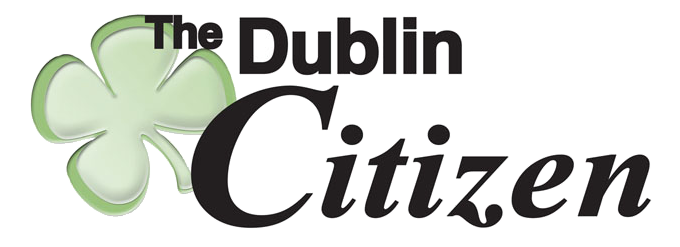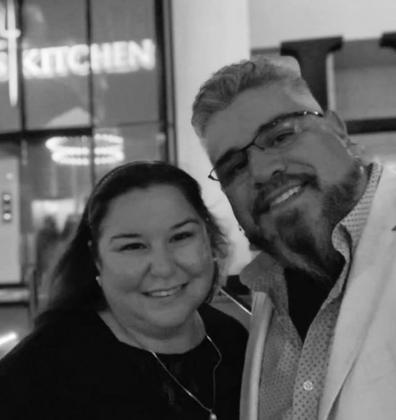Water is one of our most precious resources — and Dublin graduate Pete Prado has dedicated his career to keeping it clean and usable for his community through his work with wastewater treatment plants.
While Prado was growing up in Dublin, his family owned a landscaping company in town, and Prado and his siblings helped out whenever they had time. After he graduated in 1992, Prado moved to Salisbury, Maryland, where his mother was originally from.
There, he started his own business building waterfalls and other landscaped features for people’s yards. But while business went well in the summer, it slowed down during the long East Coast winters, and Prado began looking for other work to supplement his income.
One of his friends worked at the wastewater treatment plant for the City of Salisbury, and Prado took a job at the plant working the night shift. “I’m energetic and need to know how everything works, so I started doing that job and got really good at it,” he said. “And next thing you know, I found myself as the shift foreman.”
Within a few years, Prado was the chief operator of the facility, and then five years later moved up to the position of superintendent. He was in charge of directing operations and working with the technology the plant used to stay running.
“We’d take any wastewater from the surrounding area and treat that and turn it back into good usable water, which we discharged into a local estuary,” he said.
When wastewater would flow in from residential and commercial parts of the city, the plant would use various filtration systems and bacteria to digest the waste. The resulting product could then be separated into clean, usable water, and a substance called “sludge” that can be used as fertilizer.
“That’s where I start looking at myself as an environmentalist; we’re taking something that could harm the community and people around us, and we clean it up and put it back to a good useful source again.”
After 15 years at the City of Salisbury wastewater treatment plant, Prado took another job working for the Dogfish Head Brewery as the supervisor of their wastewater facility. The brewery had its own wastewater plant, since every gallon of beer produced generates three gallons of wastewater. “They had gotten some new technology they were looking to install, which has been kind of my forte,” Prado said.
The new technology was a type of membrane that could take the extremely polluted wastewater from the brewing process and clean it up in record time. “They were the second plant in the whole world to have that technology, and it looks like it’s going to be part of the technology for a future when we look to reuse water,” he said.
Prado spent four and a half years at Dogfish Head, until a few weeks ago he found a new position at a wastewater treatment plant that handles the water from the Dover Air Force Base and the surrounding area. He will start his new job next week.
The plant will be bigger than the others that Prado has worked with in the past — filtering 20 million gallons a day, where Dogfish Head would filter around 100,000 a day. They also use technologies that Prado has not worked with before, so he is looking forward to learning the new system.
In the future, Prado eventually hopes to go into teaching or consulting — with the ultimate end goal of retiring in the Caribbean and brewing his own beer.
When Prado is not working, he enjoys riding his motorcycle and driving sports cars, participating in local politics, and spending time with his family. His parents and two sisters also both live in Salisbury or nearby, so the family gets together often. Prado and his wife Michelle, who he met through church (she’s from the neighboring town of Delmar, MD), have been married for 25 years. They have three children, Christine, 26, Anna, 25 and Nakita, 21.
An important source of inspiration in Prado’s life is his middle daughter, Anna. All three of the Prado’s daughters are adopted (and they are all siblings), but Anna had an especially rough childhood before coming to the Prados when she was 10.
“She literally could barely read and write, she didn’t know the months of the year, or when her birthday was — the abuse to her was so bad,” he said. “She used to tell me, ‘I’m never gonna be able to learn to read or write, this could take forever,’ and I was like, ‘Well, we have forever, and you’re gonna be able to do this.’”
Prado worked with Anna for years, and she was able to learn to read and write and begin going to school. When she was in high school, Prado told Anna that if she graduated from a college of her choosing, he would buy her any car she wanted.
“It actually worked out,” he said. “She graduated just recently from Salisbury University with a master’s degree in teaching. [She showed me] that with a little bit of love and a little bit of inspiration, you can accomplish pretty much anything.”
Prado’s advice to Dublin graduates is to appreciate the special environment of growing up in a small town, even if they plan on leaving once they graduate. “If I can pick a moment to go back in time, I would go back to Dublin and being in high school,” he said. “You’re very blessed to live in such a small close knit community, and to know each and every person so [well] is an awesome experience.”
Editor’s Note: This column chronicles what Dublin graduates have done since high school. If you have any suggestions for other grads, email publisher@ dublincitizen.com.

